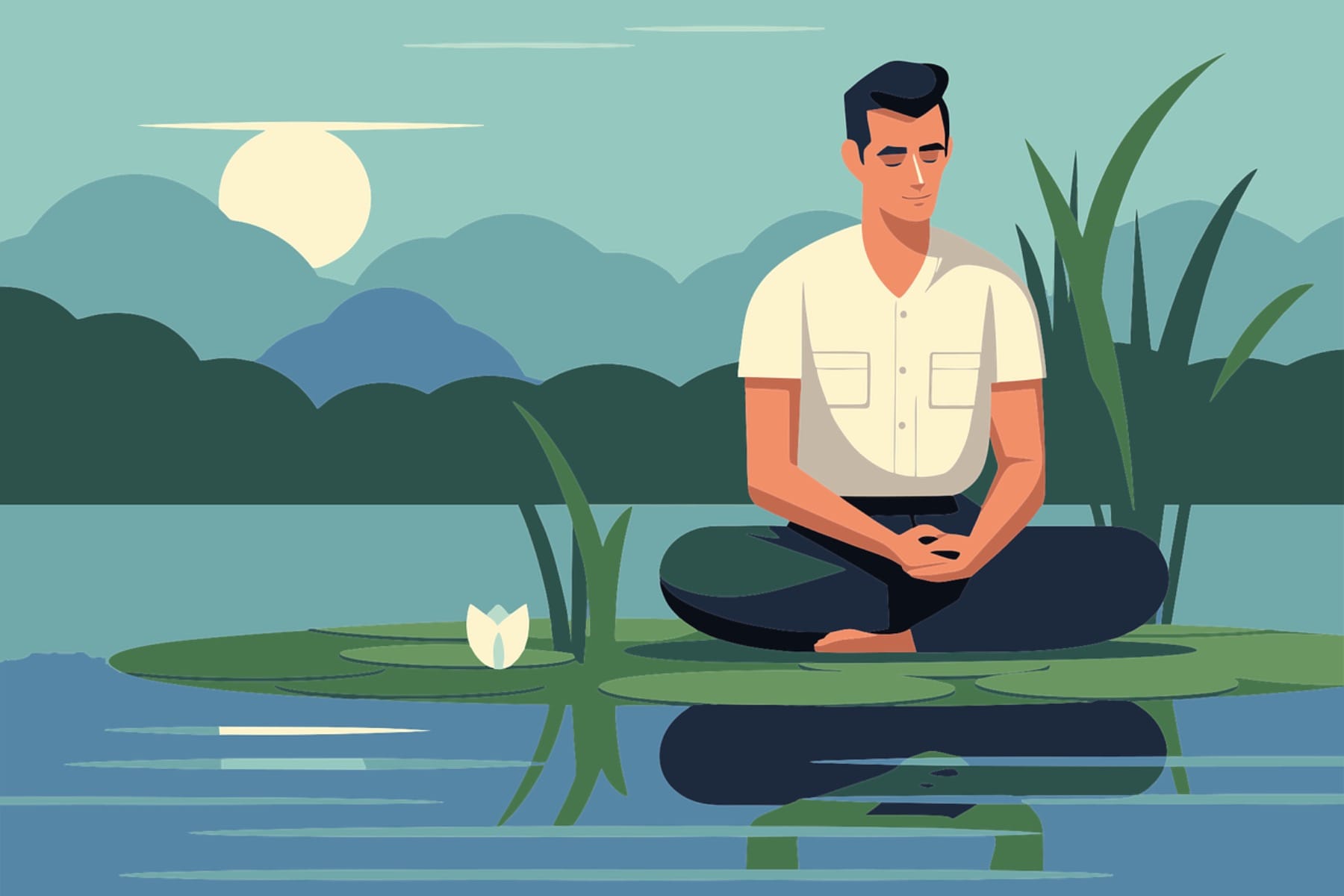A bit of mindfulness exercise won't really hurt you. It just might end up sharpening your attention skills. A new study from the intellectual titans over at the USC Leonard Davis School of Gerontology has dropped a truth bomb: just 30 days of guided mindfulness meditation can actually make your brain less of a hot mess.
And get this, it works no matter if you're a spring chicken, a seasoned middle-ager, or, well, ancient. Apparently, even the most scatterbrained among us can learn to focus without their eyes darting around like they've had too much espresso.
Now, this isn't some flaky, feel-good, "I feel more relaxed, honest!" kind of study. Oh no, these brainiacs pulled out the big guns: eye-tracking technology. That's right, they literally watched where people's eyes went, which, let's be honest, is a pretty solid way to tell if someone's actually paying attention or just pretending while mentally planning their grocery list.
Put some minutes for zen!
According to Andy Jeesu Kim, the lead author who probably meditates daily, this whole "mindfulness" thing isn't just about finding your inner peace (though that's a nice perk). It literally rewires your brain's attention system. So, the next time your boomer parents complain about forgetting where they put their keys, you can smugly suggest 15 minutes of Headspace. You're welcome.
As we gracefully (or not so gracefully) age, our brains decide to go on a little vacation. Reaction times slow down, and suddenly, that annoying fly buzzing around is more interesting than whatever you're supposed to be focusing on. This, apparently, is all thanks to a fancy-pants brain system called the locus coeruleus–noradrenaline (LC-NA) system.
Even an app works just fine

Sounds important, right? It pretty much runs the show when it comes to attention, arousal (not that kind, get your mind out of the gutter), and memory. And here's the kicker: a decline in this system has been linked to those delightful early signs of Alzheimer's. So, if you need another reason to try not to be a distracted mess, there you go.
Turns out, previous studies hinted that mindfulness might give this LC-NA system a much-needed kick in the pants. But this USC study is the first to actually prove it with cold, hard eye-tracking data, and across all age groups. Why just focus on one demographic when you can prove everyone's equally capable of being less distracted?
Just do it!
So, how did they figure this out? They wrangled 69 adults, split 'em into three age groups (young, middle-aged, and old, because originality), and made them do one of two things: A mindfulness app called Headspace and audiobooks.
After their month of mindful zen, the meditation group showed some genuinely cool improvements:
- Faster reaction times: They were quicker to spot what they needed like their brain finally got the memo.
- Laser focus: They moved their eyes directly to the target, no more dilly-dallying or getting sidetracked by a rogue dust bunny.
- Distraction? What distraction?: In some tests, they were less likely to stare at "visually loud" (read: annoying) irrelevant items. Take that, loud items!

And here's the truly shocking part (sarcasm intended): the benefits weren't just for the twenty-somethings who probably already have the attention span of a gnat. Everyone improved, equally. As Kim so eloquently put it, "We expected older adults to benefit the most, but we found that mindfulness improved attention similarly across young, middle-aged, and older adults."
While mindfulness has been trendy for years for its stress-busting, "I'm so chill" vibes, this study is a real mic drop for its cognitive benefits. Especially for attention control, which, let's be honest, is pretty crucial for, well, everything. Driving, reading, not accidentally insulting your boss during a meeting – it all comes down to attention.
And just to rub it in, the mindfulness group didn't just get a little better; they improved more quickly and significantly than the audiobook folks, particularly in reaction speed. So, while audiobooks are great for storytelling, they're not exactly going to make you a Jedi Master of focus.

